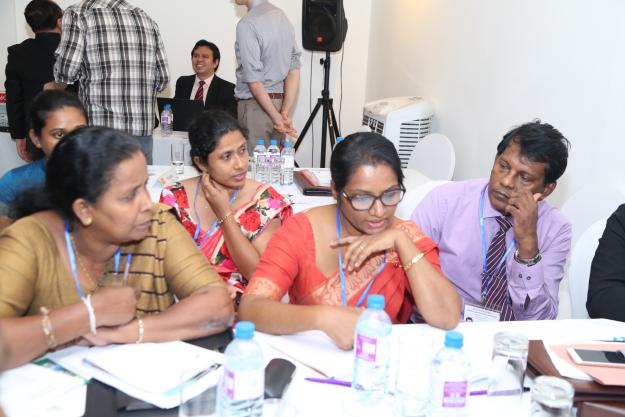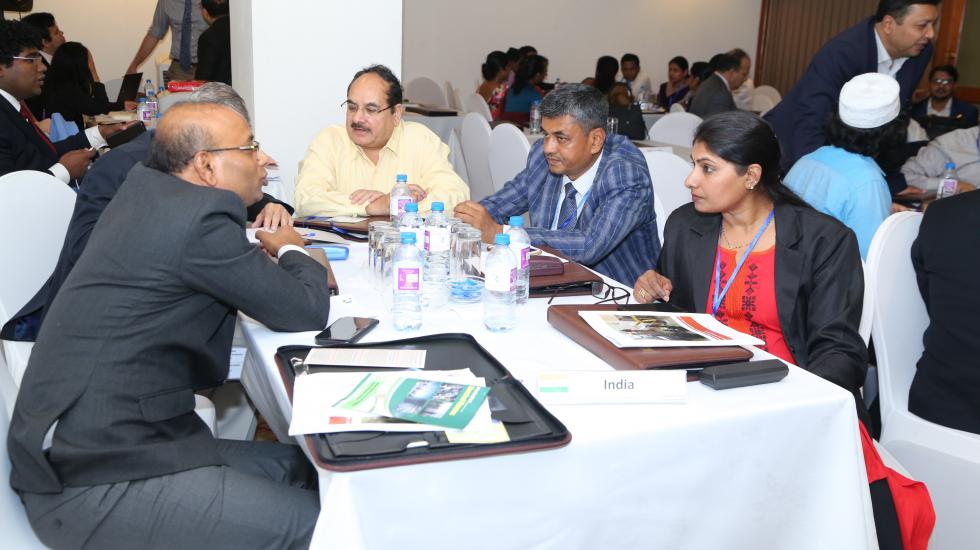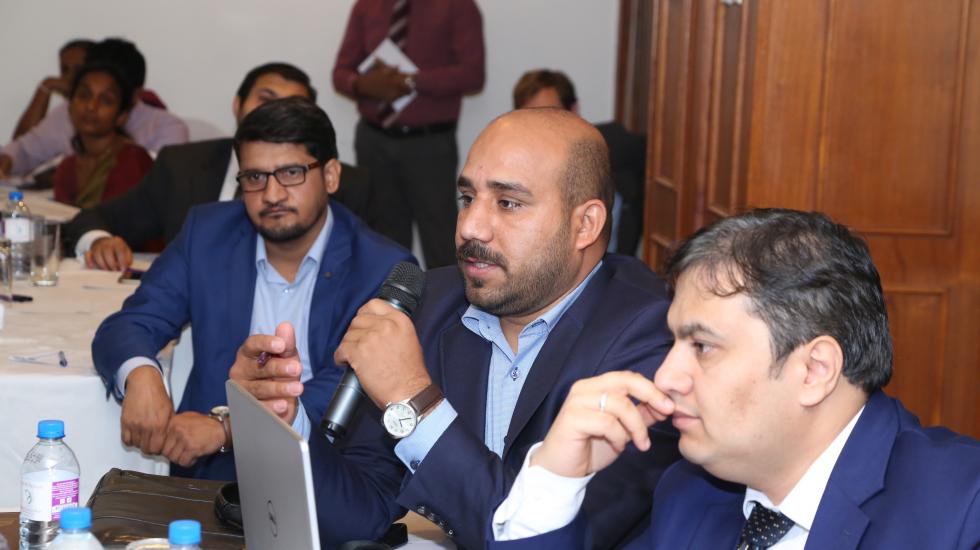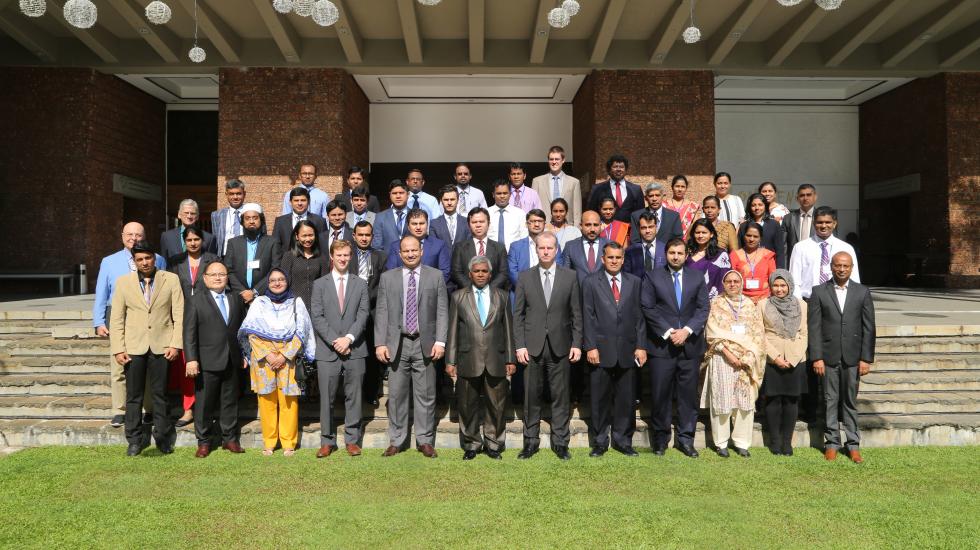
Participants at the South Asia regional workshop in Colombo, Sri Lanka
THE HAGUE, Netherlands – 11 December 2018 – Experts from five countries shared insights on chemical management during the South Asia regional workshop held in Colombo, Sri Lanka, from 4 – 6 December 2018.
The event, run by the Organisation for the Prohibition of Chemical Weapons (OPCW) in collaboration with Sri Lanka’s National Authority, explored a holistic approach to chemical safety and security management, in particular chemical risk assessment and inventory management.
Director of Sri Lanka’s National Authority, Mr M.A. Allam, speaking on behalf of Sri Lanka’s Minister of Industry and Commerce, Hon. Mahinda Yapa Abeywardena, underlined the importance of chemical safety and security management in South Asia, the region currently experiencing rapid growth of chemical industry. He also encouraged the participants to share their expertise in chemical management, and gain fresh knowledge to increase chemical safety and security across the region.
Acting Head of the OPCW’s International Cooperation Division, Mr Shawn DeCaluwe, emphasised that the Organisation encourages stronger relations between governments, industry, professional associations, and academia to promote chemical safety and security management. Furthermore, he highlighted the OPCW’s role in assisting its Member States to evaluate their strength and gaps in the implementation of chemical safety and security.
The workshop comprised panel discussions on a range of topics including: the implementation of the Chemical Weapons Convention, chemical safety and security management, chemical security threat assessment, mitigation measures and chemical inventory management.
The participants also visited an American & Efird Lanka (Pvt) Ltd chemical plant to observe the practical application of integrated chemicals management in a modern chemical industry setting.
The programme welcomed 48 experts from Afghanistan, Bangladesh, Italy, India, Indonesia, Malaysia, Pakistan, Philippines, Sri Lanka, and the United States of America, who shared their rich managerial experiences gained in government agencies, chemical industries, academia and chemical laboratories.
The workshop was funded through Chemical Security Program, US Department of State.
Background
As the implementing body for the Chemical Weapons Convention, the OPCW, with its 193 Member States, oversees the global endeavour to permanently eliminate chemical weapons. Since the Convention’s entry into force in 1997, it is the most successful disarmament treaty eliminating an entire class of weapons of mass destruction.
Over 96% of all chemical weapon stockpiles declared by possessor States have been destroyed under OPCW verification. For its extensive efforts in eliminating chemical weapons, the OPCW received the 2013 Nobel Peace Prize.
More Information



